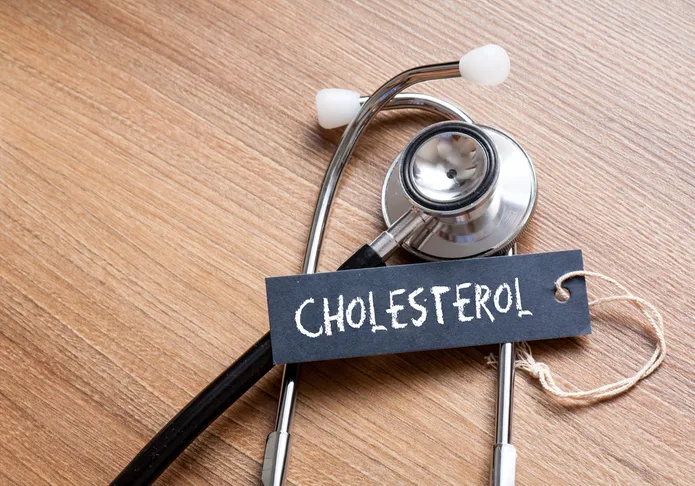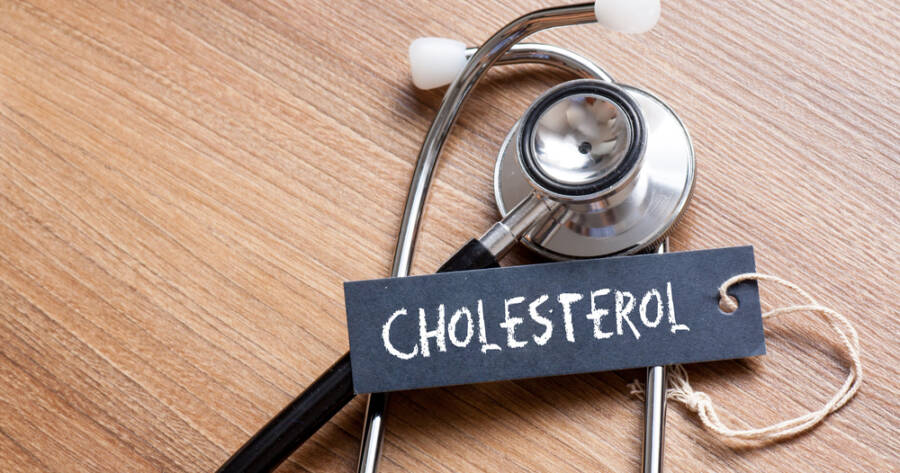Measuring the amount of cholesterol in your blood has become a routine event at every patient’s annual physical examination. This test is done because it provides specific information about a component in the bloodstream, called cholesterol, which can affect how the heart and blood vessels function. When these systems are impaired, heart attack and strokes can result.
The test is composed of two measurements, high-density lipoproteins (HDL) and low-density lipoproteins (LDL). These two components have different functions in the body. High levels of low-density lipoprotein (LDL) are associated with increased risk for cardiovascular disease. If your LDL cholesterol levels are high, your physician may advise a number of remedies to lower it to normal range.
Understanding the Role of Cholesterol
Cholesterol is an essential compound in the human body. This wax-like substance is found in every cell of the body and is an important component in producing bile acids for digestion, vitamin D, hormones and cell membranes. Human beings need cholesterol for their bodies to function normally, but too much cholesterol can create deposits on vessel walls that block blood flow, leading to heart disease and the risk for strokes.
What Is LDL Cholesterol?
Two different types of cholesterol are found in the human body, high-density lipoprotein (HDL) and low-density lipoprotein (LDL). HDL is often called the “good” cholesterol because it facilitates the removal of cholesterol from the body. LDL is often called the “bad” cholesterol because it can remain in the body and build up on blood vessel walls, eventually causing blockages.
What Are the Symptoms of High LDL Cholesterol?
Generally, there are no outward signs of high levels of LDL cholesterol. The presence of high LDL levels are usually found in blood tests ordered by the physician. However, the physician may suspect high LDL levels if the patient is overweight, has test results that indicate high blood glucose levels or is someone who lives a sedentary lifestyle. These factors often exist along with high cholesterol levels.
What Are the Treatments for High Cholesterol Levels?
Your physician will recommend a variety of ways to improve your lifestyle to lower cholesterol and improve your heart health. These options will include a better diet that reduces the amount of saturated fats and processed foods in your daily food intake. Increased amounts of fruits and vegetables can help to lower cholesterol levels, as well as help you maintain a healthy weight and normal blood glucose.
The physician will also encourage you to increase the amount of exercise you get on a daily basis. A 30-minute workout, 5 times each week, can help to improve overall health and return your test levels to within normal range. Losing weight and learning to deal with stress are other ways that can help to reduce your risk for heart disease and stroke. A number of medications are available that can also help to lower LDL when diet and exercise do not provide sufficient results.
What Medications for High Cholesterol Levels Are Effective?
If your blood tests indicate you have a high LDL cholesterol level, your physician will likely recommend taking a statin medication to lower LDL levels in the blood. These drugs work by inhibiting the production of an enzyme called HMG-CoA, which regulates cholesterol production in the liver. The drug increases the amount of LDL receptors in the liver, which then removes more cholesterol from the blood. Statin drugs are highly effective in lowering LDL levels, and they become even more effective when combined with regular exercise.
However, in some individuals, statin drugs can cause side effects, such as muscle weakness, liver damage or other problems. If you have a side effect from taking a statin drug to lower LDL cholesterol, you may have to change to another drug with fewer side effects.
Here are a few of the most common statin drugs used to lower cholesterol levels in the body:
- Atorvastatin (Lipitor)
- Lovastatin (Mevacor)
- Fluvastatin (Lescol)
- Rosuvastatin (Crestor)
- Prvavastatin (Pravachol)
- Simvastatin (Zocor)
- Pitavastatin (Livalo)

Some foods are known to increase the bad LDL cholesterol in the body. These foods should be avoided or only eaten on rare occasions to prevent raising the amount of cholesterol in the bloodstream that can lead to cardiovascular disease:
- Saturated fats and oils, such as butter, bacon fat, lard, coconut oil and palm oil should be avoided.
- Trans fat are partially hydrogenated vegetable oils that are solid at room temperatures are in products like some margarines, cookies, snack crackers, potato chips and shortenings.
- Fatty meats, like corned beef, pastrami, bologna, and other deli meats should be avoided. Hot dogs, sausage and bacon are also high in cholesterol.
- Limit organ meats like liver and kidney.
- Eggs yolks contain cholesterol. Instead choose egg whites for breakfast or omelets.
- Avoid milk products that contain more than 1% fat.
- Baked goods often contain high amounts of unhealthy fats.
- Fast food of all kinds usually contain large amount of unhealthy fats that lead to higher cholesterol levels.
- Avoid the use of butter or margarine, opting instead for olive oil for flavor.
Foods That Lower Cholesterol Levels
You can do more than just avoiding certain foods to lower your cholesterol levels. You can add foods to your diet that are known to have cholesterol-lowering properties, to improve your chances of avoiding cardiovascular disease. These foods include:
- Green leafy vegetables – These foods are low in cholesterol and contain high amount of vitamins and antioxidants to fight disease.
- Oats – Adding oatmeal and other oat products to your diet can provide measurable improvement in your cholesterol levels.
- Fatty fish – Salmon, herring and other fatty types of fish contain omega-3 oils that raise good cholesterol levels.
- Nuts – Individuals who snack on a 1.5-ounce portion of nuts per day can lower their LDL cholesterol levels as much as 9.3 percent.
- Tea – Individuals who drink tea can lower their cholesterol levels as much as 10 percent in a 3-week period.
- Beans – If you add ½ cup of beans to your soup each day, you can reduce your cholesterol levels by 8 percent.
- Red wine – Red wine contains chemicals that can help to lower cholesterol levels and improve heart health. Just a small amount each day can provide the protective measures to lower cholesterol and improve cardiovascular function.
Careful attention to diet and exercise can help to lower the amount of LDL cholesterol in your bloodstream to help avoid cardiovascular disease. However, when dietary changes aren’t enough, your physician can prescribe medications that can help to lower LDL levels and other methods that can help you maintain a healthy cardiovascular system. Regular cholesterol testing during your annual physical exam can help your physician ensure that your cholesterol levels remain within normal range.



